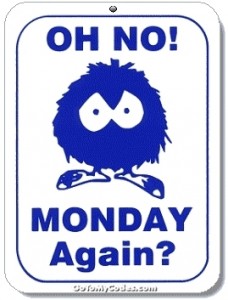 Monday was bluer than Tuesday or Wednesday?
Monday was bluer than Tuesday or Wednesday?
The peak-end heuristic is the tendency to emphasize peaks and recent experience when one summarizes over a period of time.
In the case of the blue Monday belief, it is likely that heuristics are at work. Thinking that Monday is the worst day of the week may be based on our innate attention to change: the shift from pleasant Sundays to ordinary Mondays constitutes the largest change in mood over a week for a person working a typical weekday shift. So, when thinking about mood on different days of the week, we react to change rather than the absolute levels of daily mood — a so-called contrast effect. In doing so we get it wrong, at least in terms of representing the actual mood experience in memory.
The human brain has vast, but limited, capacities to store, retrieve and process information. Yet we are often confronted with questions that challenge these capacities. When information isn’t available for answering a question — say, when it did not make it into our memories in the first place — we use whatever information is available, even if it isn’t particularly relevant to the question at hand.
When asked about pain for the last week, most people cannot completely remember all of its ups and downs over seven days. However, we are likely to remember it at its worst and may use that as a way of summarizing pain for the entire week. When asked about our current satisfaction with life, we may focus on the first things that come to mind — a recent spat with a spouse or maybe a compliment from the boss at work.
Source:
